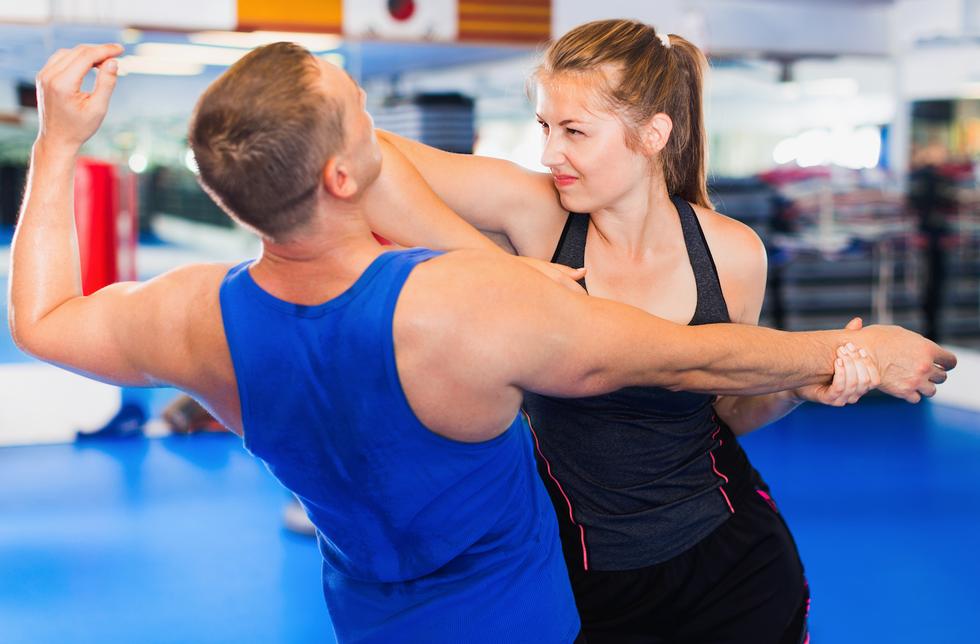
Martial arts can be found all over the world, not just in Europe and Asia. African cultures have their own methods of fighting and self-defense. These systems include Nguni stickfighting (judo), Dambe and Hapkido.
Nguni stick-fighting
Nguni stickfighting is an African martial art that has been practiced over the centuries. Similar to underground boxing, it's performed in public places where there are large crowds. To enter a competition, competitors pay a small amount and the winner receives some money. This form of sport is popular in poor areas as it provides additional income. Traditional medicine is used by the fighters to prepare for their bouts. Also, the Nguni stick fight scars can be considered badges.

Dambe
Dambe is a form of martial arts in Nigeria, practiced by the Hausa people. In order to win, opponents must submit their opponent within three rounds. This can lead directly to serious bodily injury. In Hausa, boxers are called damanga (boxers).
Hapkido
Hapkido refers to a form or karate where the practitioner applies force towards a joint. The aim is to force a joint out of its normal range of motion, causing pain and gaining control over an opponent. It is different from aikido, which has a pacifist philosophy.
Judo
Judo martial art is rooted in Africa's history. While the modern version comes from Japan, it was practiced first in Africa almost a thousand-years ago. These ancient art forms still exist in many African nations today.
Tai-Chi
While on safari in Africa, many Africans practice Tai-Chi. One is a Rwandan student that posts videos on social media of his practice. Another Cameroonian, who learned boxing techniques from tai chi, is another.

Ju-Jitsu
Ju-Jitsu's martial arts aren't just popular in Japan. There is plenty of Ju-Jitsu training on the continent. Angola, Burkina Faso and Nigeria are all West African countries. This fighting style emphasizes leg muscle and sweeping and kicks your opponent.
FAQ
Where is the best place for self-defense?
In your own backyard, self-defense is best. But if you don’t have the space to practice, you can always go elsewhere.
You can practice in a parking garage, in a park or in your living room. Be aware of where you are and what is around you.
You shouldn't practice alone. This can be dangerous. Always practice with a partner.
Are there any legal requirements to own a stungun?
Some states require that you show proof of training before you can get a stungun.
Some states require that you register your stun gun with police.
Other states require that you notify law enforcement authorities whenever you move.
What should I look at in a class for self-defense?
Look at the instructor's reputation and experience when selecting a self-defense class. Ask about their background and credentials.
Ask about discounts and free trials. Many instructors offer discounts or free trials to new students.
Ask if they offer online classes so you can take advantage of them whenever you want.
Ask the instructor if they offer any emergency medical treatment after a class. This is especially important for anyone who gets hurt in class.
Make sure you find a class with a variety of exercises. This will allow you to practice each technique in a relaxed environment.
Statistics
- The Rape, Abuse & Incest National Network reports that 70 percent of sexual violence cases aren't committed by random strangers in a dark alley but by people we know: friends, family, partners, co-workers, etc. (healthline.com)
- In a January 2018 survey of 1,000 women nationwide, 81 percent reported experiencing some form of sexual harassment, assault, or both in their lifetime. (healthline.com)
- Most likely, the person will want some kind of boxing match, so if you can out-box them, this would be 100% ideal for survival. (budodragon.com)
- Saying this, Self defense 101 would be the importance of situational awareness, which can never be replaced by the finest of martial arts, because it is this that would help you to avoid any likely attacks in the first place. (worldofselfdefense.com)
External Links
How To
How to Survive An Invasion At Your Home
Home invasion is frightening, especially if you have children. We didn't know we would have to go through this ourselves when we started our home security system installation journey. Here's what we've learned so far.
-
You must not allow your kids to see the attackers. Two men broke into the house while our children were sleeping upstairs. They were kept downstairs until the police arrived. Although our children weren't injured, they were traumatized enough.
-
Lock all valuables. Our bedroom has a safe that holds valuables. Even if someone breaks into the house, they won't be able to access it.
-
Keep an eye out for burglars. We live in an area that is prone to burglaries. We pay attention to suspicious cars and people.
-
Make sure you have a backup plan. Our family will be financially taken care of financially if anything happens. If necessary, we have a plan for leaving the country.
-
Be Prepared. If you are ever in a situation where your life is at stake, it is important to be prepared. You should always have water and food on hand.
-
Call 911 first. Call 911 immediately if you suspect that someone has broken into the house. It's better not to wait for someone to break into your home than to call the police.
-
Use Common Sense. Don't let anyone inside who doesn't belong there. Don't invite strangers over.
-
Get Help From Neighbors Or Other People In The Area. If you feel unsafe call neighbors and friends. They can be there to help you while you call 911.
-
Stay Calm And Do As Instructed By Police Officers. Stay calm and do exactly as instructed by officers. Do not run or resist arrest.
-
Take photos of all evidence. Take pictures of any evidence found during the investigation. This includes blood samples and fingerprints.
-
Local Law Enforcement. You can file a police report even if nobody was hurt. This will help to prevent future crimes.
-
Get in touch with your insurance company immediately. Contact your insurance company right away. Let them know everything and then ask for an adjuster.
-
Take away personal belongings. Take your personal belongings off the premises. Take off expensive jewelry and keep it safe.
-
You must take good care of yourself. Make sure you clean up after yourself. Make sure you empty the trash, clean up any broken glass, and lock all doors.
-
Do not talk about what happened. Do not talk about what happened to anyone. You never know who could use this information against your later.